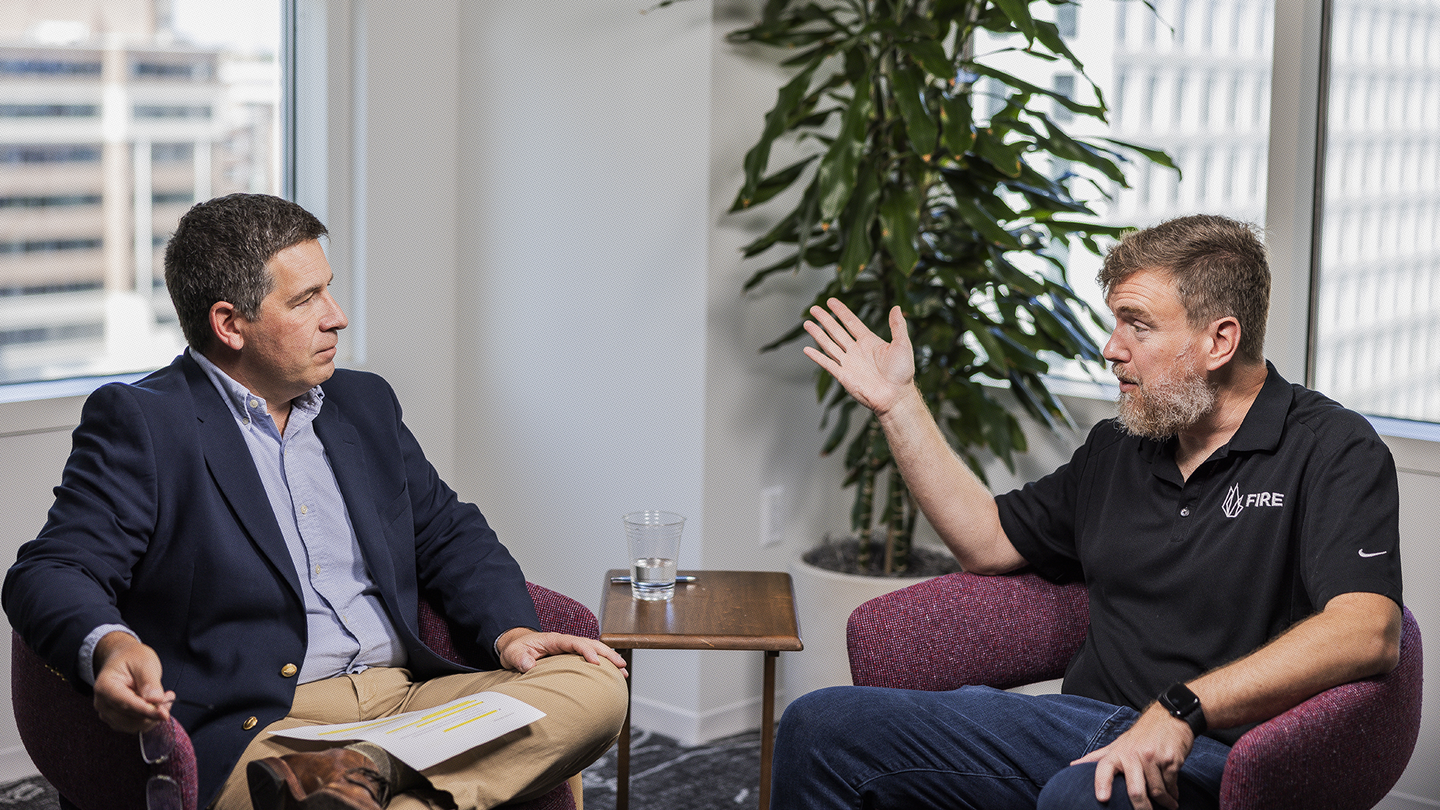The Foundation for Individual Rights and Expression (FIRE), a nonpartisan organization that protects Americans’ right to free speech, just released its fifth annual College Free Speech Rankings, which measures the state of free speech on college campuses.
Historically, free speech has been the locomotive for people to debate and refine ideas to solve problems and drive human progress.
This is especially important on college campuses, often called “the marketplace of ideas.” But what happens on college campuses doesn’t stay there, as students take the lessons learned about civil liberties — good or bad — into their careers.
Stand Together brought together two free speech experts, Casey Mattox, Stand Together’s vice president of legal strategy, and FIRE President and CEO Greg Lukianoff, to discuss the 2025 rankings and the current and future state of free speech both on and beyond college campuses.
This conversation has been edited for length and clarity.
The current state of free speech
Casey Mattox:
Greg, how are we doing on free speech?
Greg Lukianoff:
I'm a long-term optimist on freedom of speech. I always make the point that freedom of speech works really well. Any society that actually has freedom of speech or any corporation that allows people to dissent has an advantage over everyone else.
But in the short term, I'm pretty worried.
Obviously, free speech is in trouble in the unfree world, such as in Russia, China, etc. But it's increasingly under threat, in a really dramatic way, even in places that we used to think of as being quite free: the UK, France, Ireland.
In Canada, they're considering passing a law that would have life imprisonment for speech crimes. It's a pretty scary moment.
I'm definitely concerned about the current state of free speech. America should not take for granted the protections we have.
Sign up for the Stand Together newsletter and get stories, ideas, and advice from changemakers to help you tackle America’s biggest problems.
How the free speech rankings are getting the attention of universities
Casey Mattox:
FIRE just issued its 2025 college free speech rankings. Tell us about the rankings and, what's the top line from this year’s results?
Greg Lukianoff:
It is based on the largest student survey ever conducted of the environment for free speech on campuses every year ... It’s the largest database of professor cancellations, student cancellations, deplatformings and speech codes that has ever been put together.
But the coolest thing that's come out of this, and exactly what we were hoping would come out of it, is universities taking these rankings very seriously, and they are.
They’re asking, how can we fix it?
It's become such a normal part of my job that the very first thing I say when I get in a room with a university president, which is happening more often now, is there's nothing I can do other than give you advice on how you could improve the environment, how to score better next time.
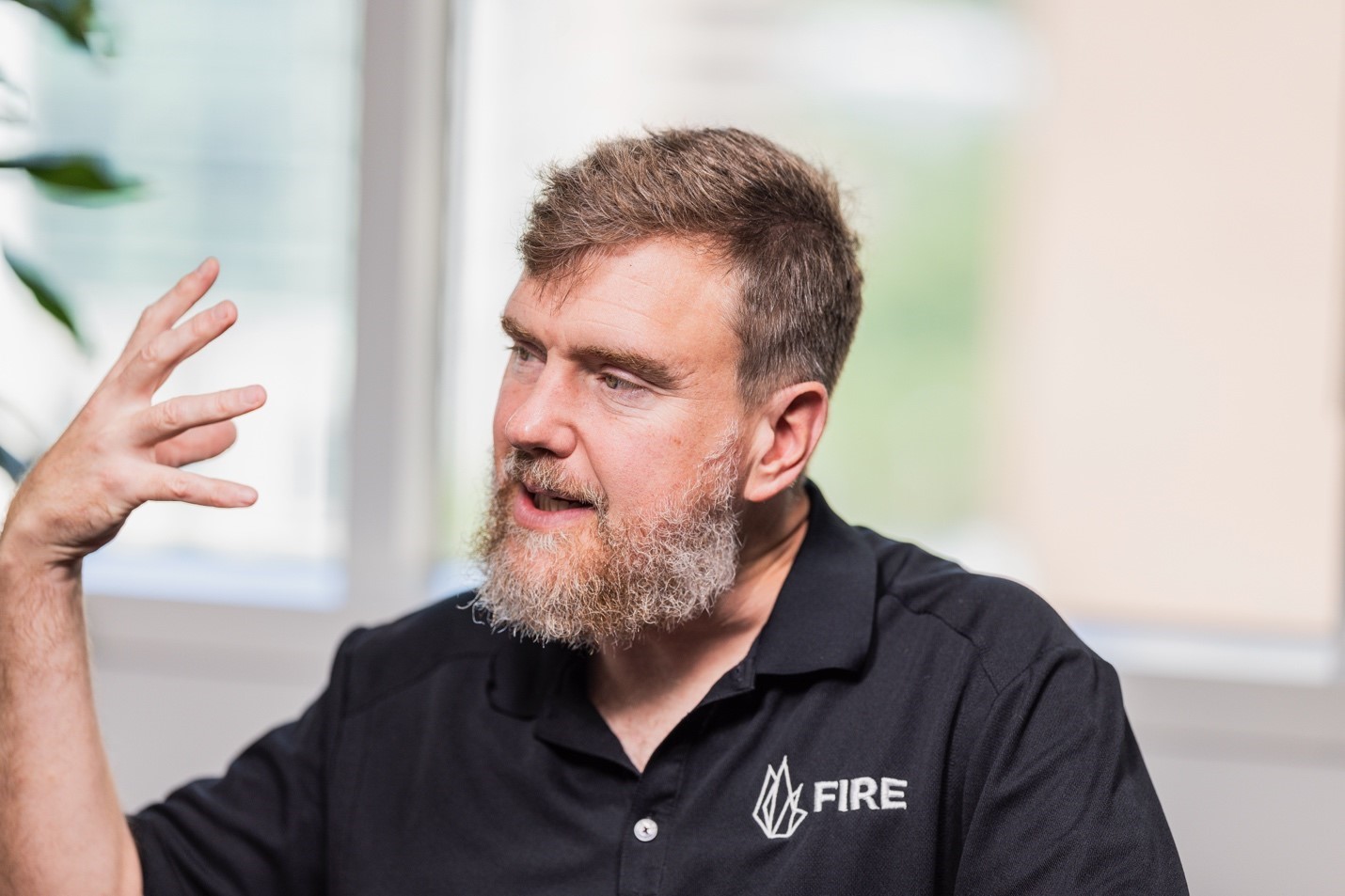
Why free speech matters
Casey Mattox:
Why does free speech matter in the university context? Why should this be something that we care about?
Greg Lukianoff:
I don't think universities really understand how badly they have undermined people's faith in the production of knowledge. That is one of their central chores.
The academy is probably doing a great job on things related to cancer, for example, a lot of the hard sciences. But when it comes to anything that has a political relevance, there are too many layers of conformity-inducing pressures all throughout the entire process. And if you have an environment like that, it not only makes you less capable of discerning truth from falsity, it's that no one's going to trust you to do that.
I make the point in my latest book, “The Canceling the American Mind.” I point out well over a thousand examples of professors getting cancel mobs going after them and over 200 examples of professors being fired.
When we did a massive survey of professors, one in six said they had either been threatened with punishment or actually punished for what they said or published.
You can't be trusted to produce knowledge, to innovate, to actually help the world or solve local problems. Free speech is absolutely essential to the functioning of the university, so they need it even out of their own selfish, self-interest.
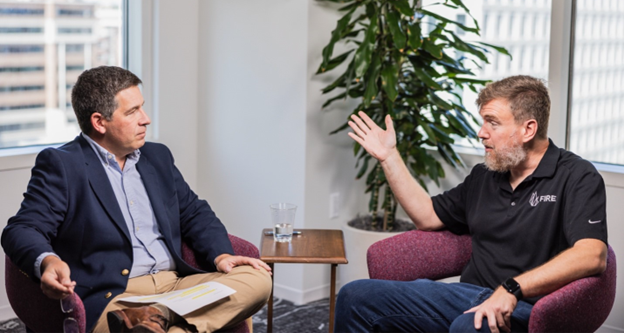
Free speech in an era of disinformation
Casey Mattox:
There are some bad opinions on social media. Disinformation is an actual thing. It’s painful watching people believe things that are demonstrably false.
Disinformation is a problem: antisemitism, racism, misogyny. These are all real concerns. How do you defend free speech in a world in which those kinds of problems exist?
Greg Lukianoff:
I think people tend to blame free speech for those problems. And those problems would, I believe, actually be worse if it wasn't for free speech. There's a First Amendment theory that if you make bad speech illegal, it will go underground and fester.
There’s something called group polarization: If you make an environment in which people can't say what they really think, [then] they're not going to change their mind .... They're just going to talk to people they already agree with. And if you don't have the moderating influence of anyone you disagree with, you absolutely spiral off into radicalism.
The thing that's causing a lot of the radicalism we're seeing today, both here and in Europe and everywhere else, is this runaway loop of group polarization that is completely, 100% predictable in a situation where you can't actually engage in candor and discuss difficult ideas.
You cannot understand the world unless you know what people really think and why.
You are not safer for knowing less about what people really think.
Hope for the future
The FIRE rankings underscore that while threats to free speech certainly exist, others are recommitting themselves to one of America’s fundamental rights.
In a country as diverse as ours, free expression is critical to ensuring people of different beliefs and backgrounds are able to fully participate in democracy and public life. Most Americans know that, still believe in the importance of free speech, and are increasingly turning to groups like FIRE.
Free speech is under pressure today, but that’s hardly news.
As Lukianoff explains, it has always been the “eternally radical idea.” So we shouldn’t be surprised to see threats to free speech from those in power. But even with these threats, free speech continues to have its defenders.
“The kind of people we’re attracting to FIRE and the kind of people I get to work with is stunning; those who have been there for 17 years and the new talent we've been able to attract. It's such a broad coalition, right, left and center, people who work together, like each other, and enjoy arguing with each other,” Lukianoff said.
“It leaves me hopeful for the future because there are people of goodwill and courage who are willing to stand up for free speech, for everyone.”
The Foundation for Individual Rights and Expression (FIRE) is supported by Stand Together Trust, which provides funding and strategic capabilities to innovators, scholars, and social entrepreneurs to develop new and better ways to tackle America’s biggest problems.
Learn more about Stand Together’s efforts to defend America’s constitutionally limited government and explore ways you can partner with us.
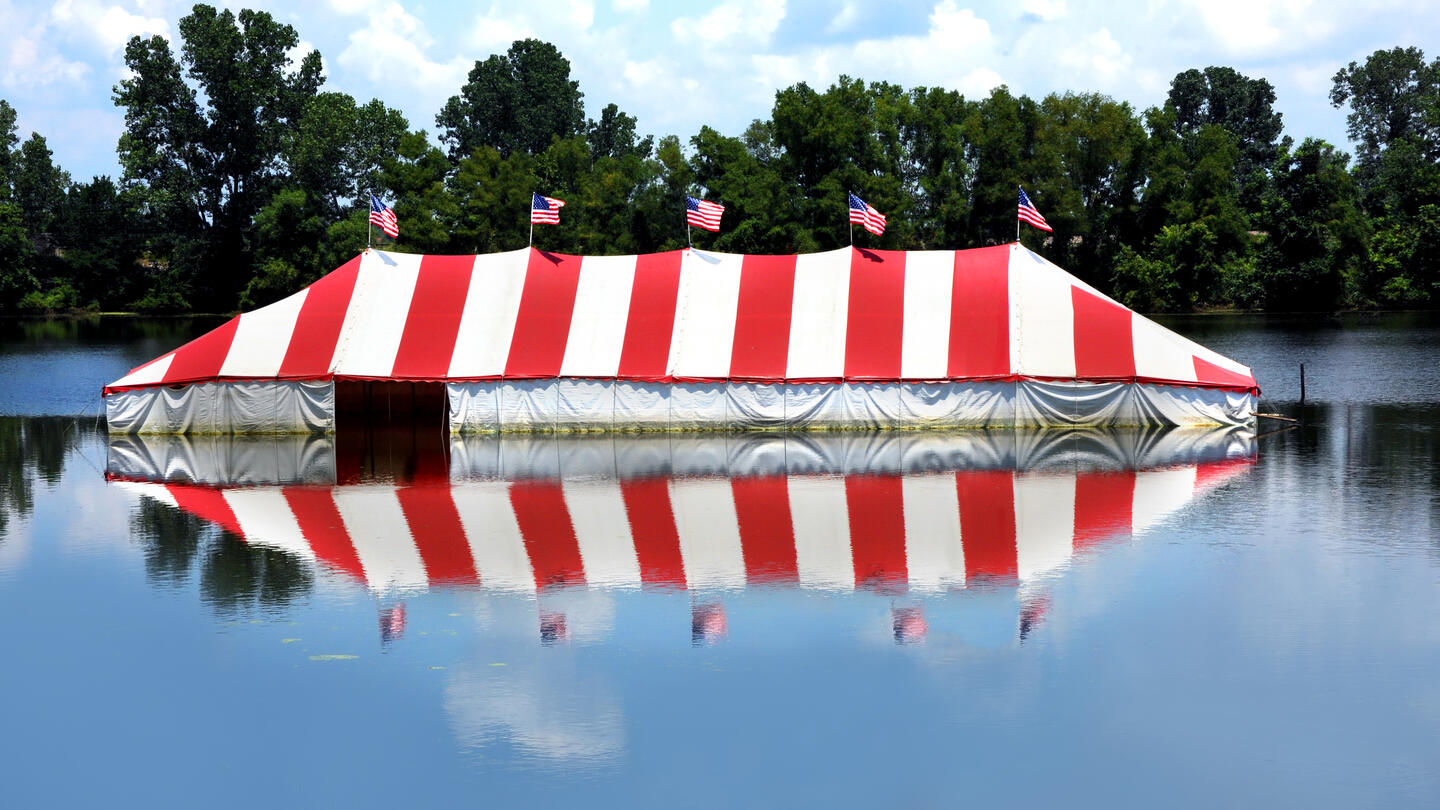
This federal agency is leaving one business in legal limbo.

Protecting the constitutional rights of patients and medical providers.

The government can’t take more than it’s owed.
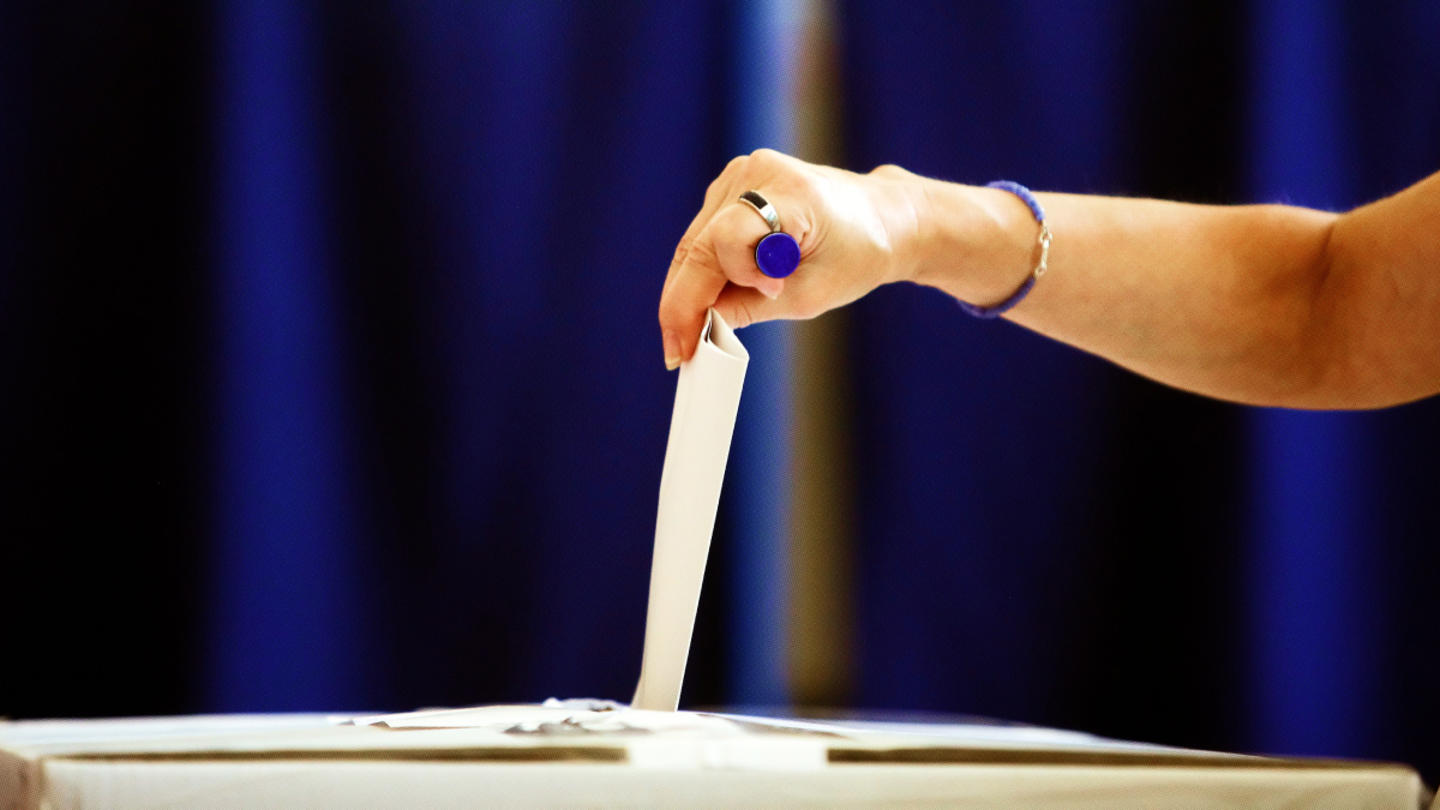
Here’s a hint: It’s not policy disagreements
